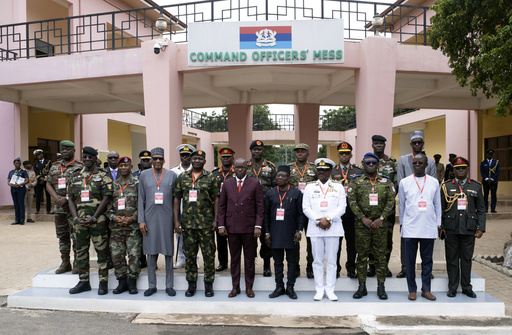
BAMAKO, Mali — The Economic Community of West African States (ECOWAS) is encountering significant difficulties following the formal exit of three nations led by military juntas: Mali, Niger, and Burkina Faso. Their withdrawal marks a notable shift in the organization’s dynamics, leading to the establishment of a new alliance and reducing ECOWAS’s influence and political clout in the region.
The departure of these three nations, which was officially announced in January 2024, concludes over a year of diplomatic talks and attempts by ECOWAS to persuade them to remain. This marked the first instance of member states withdrawing from the organization since it was established 50 years ago, and analysts caution that a diminished ECOWAS could further destabilize the increasingly delicate situation in West Africa.
Founded in 1975, ECOWAS comprises 15 nations and is considered the foremost political and regional authority in West Africa, aimed at fostering economic integration among its members. The bloc provides its members with visa-free travel privileges and grants access to a market valued at over $700 billion, catering to approximately 400 million residents. Nevertheless, some regions within West Africa face a legitimacy crisis regarding ECOWAS, with many citizens perceiving it as primarily serving the interests of political leaders rather than the populace.
The relationship between these junta-led nations and ECOWAS began to sour after the bloc imposed strict sanctions on Niger, intending to urge its military government to overturn the recent coup. Historically, ECOWAS has frequently utilized sanctions to reverse coups, but the measures taken against Niger were particularly severe. Neighboring countries closed their borders, cut off over 70% of Niger’s electricity supply, halted financial transactions, and froze the country’s assets managed by ECOWAS. The three nations denounced these sanctions as “inhumane” and accused ECOWAS of straying from its foundational principles and the ideals of pan-African unity.
Following their departure from ECOWAS, Mali, Niger, and Burkina Faso established a new coalition called the Alliance of Sahel States (AES), named after the extensive southern border of the Sahara Desert. These countries severed military ties with long-time Western allies, including the United States and France, and sought military support from Russia.
In a bid to mend relations, ECOWAS has taken steps to de-escalate tensions by reversing the sanctions it imposed in February and attempting to initiate new negotiations, although the AES has dismissed these efforts. Despite ECOWAS expressing openness for the trio to regain the benefits enjoyed by other members, the three nations are now introducing their own travel documents for their citizens.
Trade is expected to proceed as normal, as Mali, Niger, and Burkina Faso still belong to the West African Economic and Monetary Union, which allows for the continuous flow of goods among its eight member states. The monetary union includes the three countries alongside Senegal, Ivory Coast, Guinea-Bissau, Togo, and Benin. A six-month timeframe for negotiations between ECOWAS and the trio concludes in July. However, analyst Babacar Ndiaye from the Wathi think tank expresses skepticism that the AES members will reassess their exit from ECOWAS.
There are growing concerns that a weakened ECOWAS could struggle to address escalating security challenges extending from the conflict-affected Sahel region to coastal West African nations. Moreover, the organization may find it increasingly difficult to reverse military takeovers in Mali, Niger, and Burkina Faso, which could result in reduced foreign investments in these already impoverished countries, according to Charlie Robertson, chief economist at Renaissance Capital.

